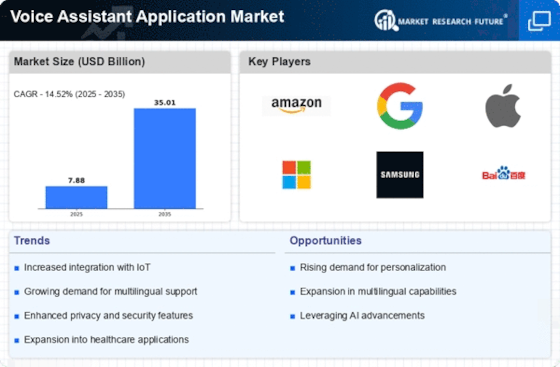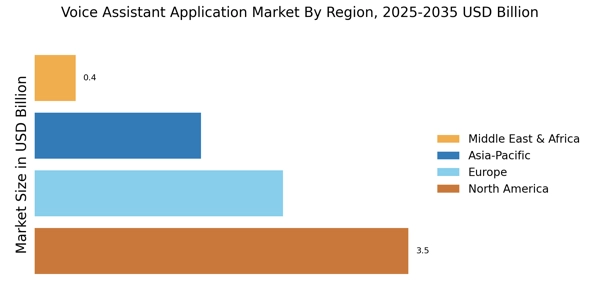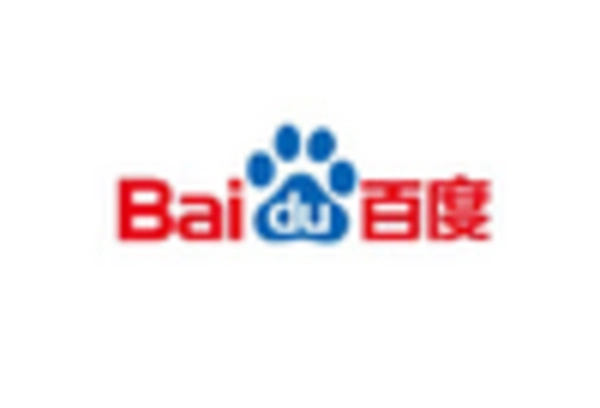Rising Adoption of Smart Devices
The proliferation of smart devices has catalyzed the growth of the Voice Assistant Application Market. As consumers increasingly integrate smart speakers, wearables, and IoT devices into their daily lives, the demand for voice assistants has surged. According to recent data, the number of smart home devices is projected to reach over 1.5 billion units by 2026. This trend indicates a growing reliance on voice technology for seamless interaction with various devices. Consequently, the Voice Assistant Application Market is likely to experience substantial growth as manufacturers and developers focus on enhancing compatibility and functionality across diverse platforms.
Increased Focus on Privacy and Security
As concerns regarding privacy and data security escalate, the Voice Assistant Application Market is witnessing a shift towards more secure voice technologies. Consumers are becoming more discerning about how their data is collected and used, prompting developers to prioritize security features in their applications. Recent surveys indicate that over 70% of users express concerns about data privacy when using voice assistants. This growing awareness is likely to drive innovation in the Voice Assistant Application Market, as companies strive to build trust and ensure compliance with emerging regulations.
Advancements in Natural Language Processing
Technological advancements in Natural Language Processing (NLP) are significantly influencing the Voice Assistant Application Market. Enhanced NLP capabilities enable voice assistants to understand and respond to user queries with greater accuracy and context awareness. This improvement is evidenced by the increasing accuracy rates of voice recognition systems, which have reportedly reached over 95% in certain applications. As NLP continues to evolve, it is expected that the Voice Assistant Application Market will expand, driven by the demand for more intuitive and user-friendly interactions.
Growing Demand for Voice-Activated Services
The demand for voice-activated services is on the rise, propelling the Voice Assistant Application Market forward. Consumers are increasingly seeking hands-free solutions for tasks such as shopping, navigation, and information retrieval. Market data suggests that the voice commerce segment alone is anticipated to exceed 40 billion dollars by 2025. This trend indicates a shift in consumer behavior towards convenience and efficiency, which voice assistants can provide. As a result, businesses are likely to invest more in voice technology to meet this growing demand, further stimulating the Voice Assistant Application Market.
Expansion of Voice Assistant Applications in Enterprises
The integration of voice assistants in enterprise settings is emerging as a key driver for the Voice Assistant Application Market. Businesses are increasingly adopting voice technology to enhance productivity, streamline operations, and improve customer service. Reports indicate that the use of voice assistants in corporate environments could lead to a 30% increase in efficiency. This trend suggests that the Voice Assistant Application Market will continue to grow as organizations recognize the potential of voice technology to transform their operations and enhance employee engagement.

















